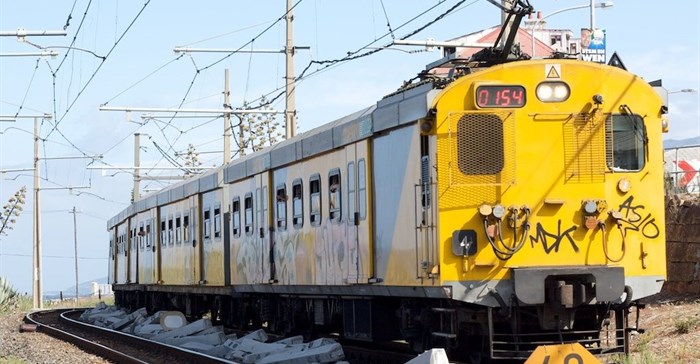
Top stories





Marketing & MediaWarner Bros. was “nice to have” but not at any price, says Netflix
Karabo Ledwaba 2 days

More news

Logistics & Transport
Maersk reroutes sailings around Africa amid Red Sea constraints













It is no news that commuter rail in Cape Town is on the brink of total collapse. In his statement, Herron said that passenger rail numbers in Cape Town have fallen by 30% from 2015/16 to 2016/17. According to the latest data received from Metrorail, there were on average 2.7 million fewer rail journeys in Cape Town per month in 2016/17 when compared with 2015/16.
Commuters cannot rely on the trains to travel to and from work for multiple reasons:
"Passenger rail is the backbone of public transport in Cape Town. More than half of all commuter journeys – that is 54% – are made by train. However, Metrorail’s data confirms that thousands of commuters have been displaced to road-based transport – be it private vehicles, minibus-taxis or buses – over the past two years," said Herron.
"We are facing a real risk that passenger rail in Cape Town could effectively collapse before the DoT’s National Rail Policy (draft White Paper) of June 2017 is finalised to devolve the management of passenger rail to municipalities. This could take another two to three years," he said.
Herron is of the opinion that the city cannot sit back and wait for the National Government to intervene. "Time is of the essence. Should Council give us the go-ahead, we will present a business plan to the DoT in which we will propose to take over passenger rail in a structured and incremental manner.
"We will be exposing ourselves to significant risks – key among them being a possible shortfall in funding as we estimate that we would need hundreds of millions of rands in the short- to medium-term to halt the decline and to build up passenger rail from scratch," he said.
The city will need more funding at various points during the rescue operation – thus, it is proposed that the handover is structured and incremental.
"Cape Town cannot survive without a fully functional, effective and world-class passenger rail service. Without it, our economic growth will be severely hampered, travelling times and transport costs will keep on rising, and our environment will suffer due to an increase in carbon emissions and traffic congestion. These count among the key priorities in the city’s Organisational Development and Transformation Plan and Integrated Development Plan.
"It will take us years to repair the damage done to passenger rail over the past three decades. Setbacks should be expected. Restoring commuters’ faith in passenger rail and improving the service to world-class standards will require perseverance from officials, patience from our commuters, and political leadership as we embark on this treacherous journey," he continued.
Inclusive of the business plan for the assignment of the urban rail function is a report setting out a detailed analysis of the risks involved and the measures in mitigating these. The business plan sets out the city’s assignment methodology.
The city has divided the urban rail system into 16 key functional components, including the train operations, signalling, stations, ticketing, transport enforcement, and rolling stock. Implementation steps have been identified for each component.
The reports will serve before the Mayoral Committee for recommendation next week and will be submitted to full Council for approval on 26 October 2017.
"We are facing a mammoth task, and we will need our residents to support us in this endeavour. From our side, we are committed to providing the political direction and leadership to get us back on track," concluded Herron.